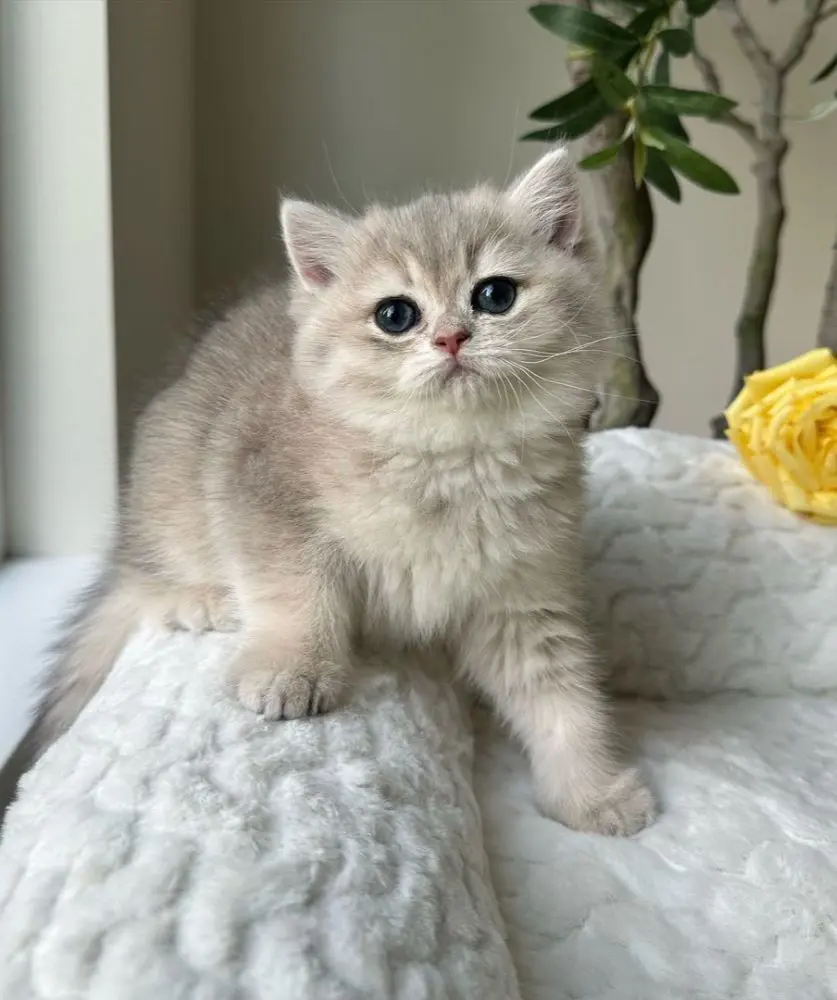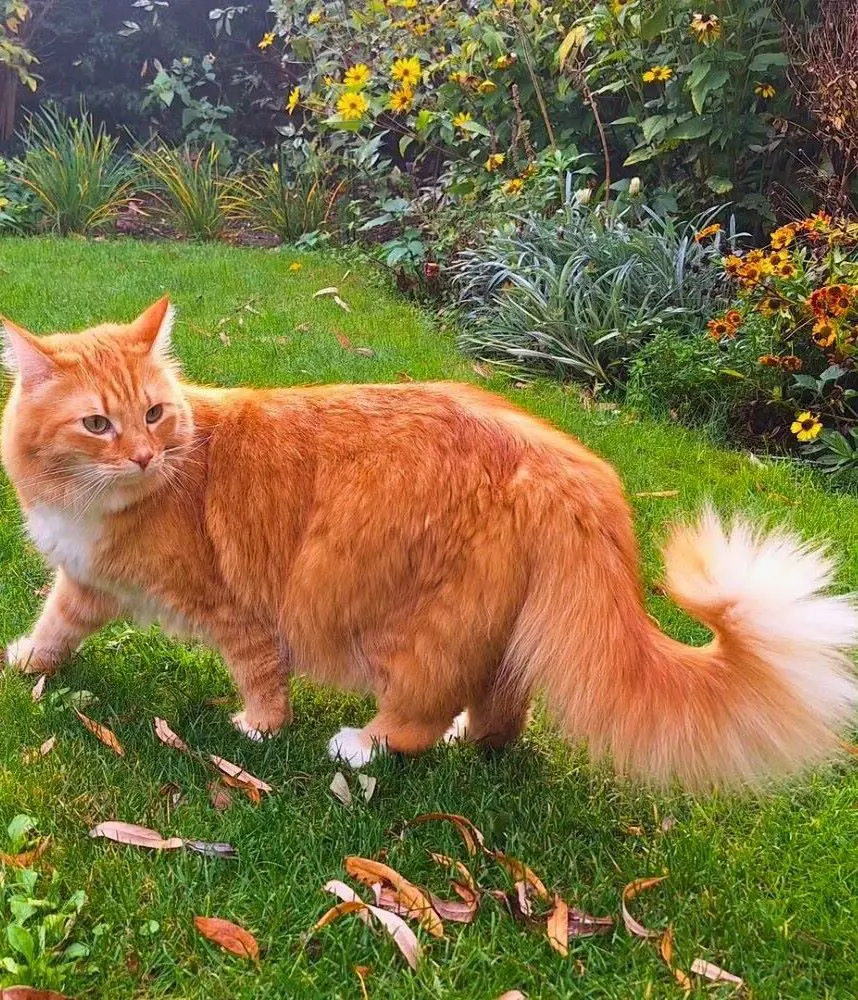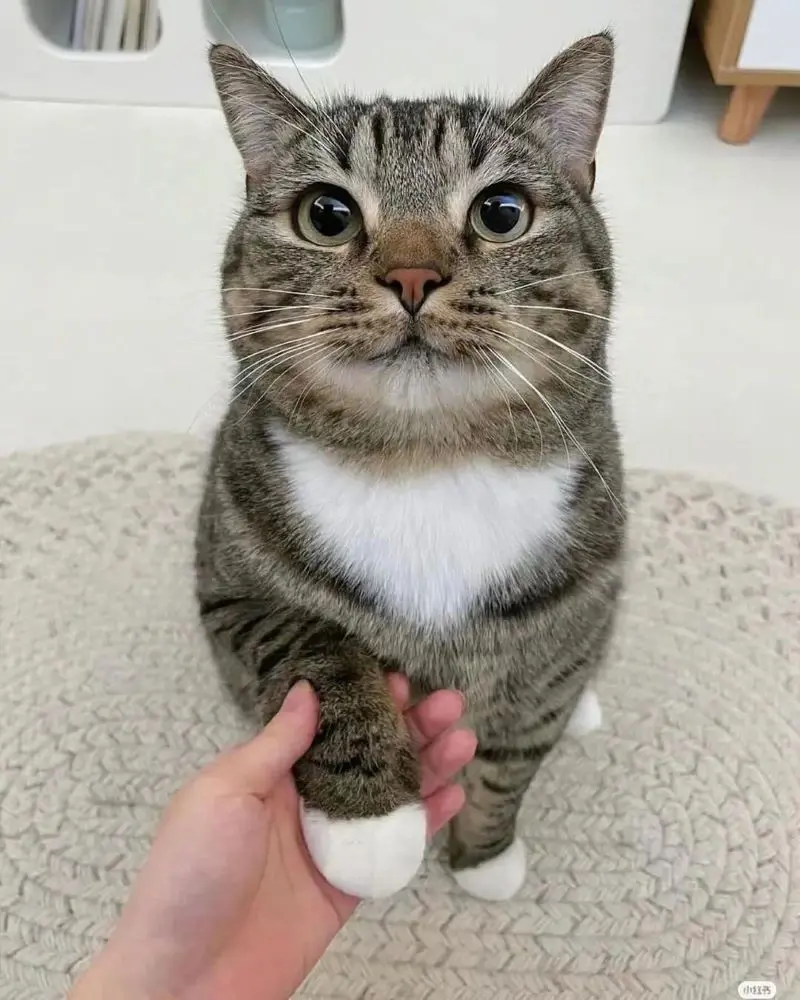20 Foods That Are Toxic To Cats
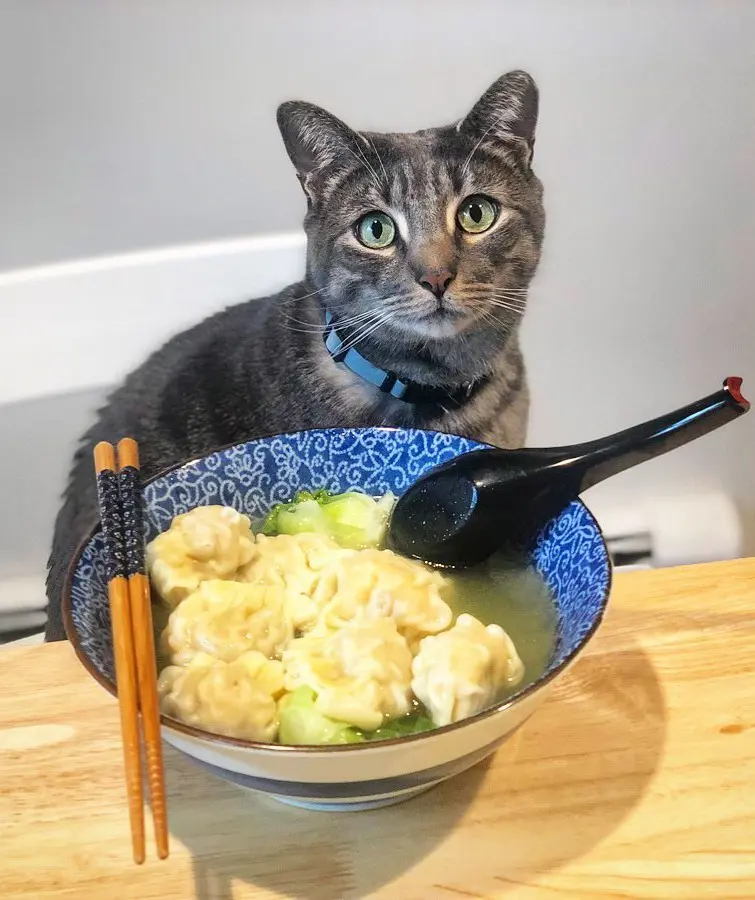
As a cat owner, you might have noticed the pleading eyes of your pet during dinner, begging you to share your meal with them. But, don't fall for this entrapment as, despite your best intentions, not all human foods are safe for a cat's consumption.
If you plan to share your food with the cat, despite the warnings, you should first know the foods that are toxic to cats. Just make sure to avoid these foods, possibly even in the tiniest amount.
1. Chocolate
Chocolate contains an alkaline called theobromine, which is toxic to cats and even lethal in higher doses. Dark chocolates, due to their high percentage of cocoa, are especially bad for cats.
Vets recommend avoiding chocolate completely in a cat's diet; even chocolate-flavored products are considered harmful to canines. Chocolate poisoning in cats can take a few hours to show the symptoms, normally around 2 to 12 hours.
If you suspect chocolate toxicity in your pet, look for additional symptoms that usually follow the poisoning. Signs like vomiting, diarrhea, restlessness, and increased heart rate, among others can occur with a few hours of the suspected poisoning.
2. Grapes and Raisins
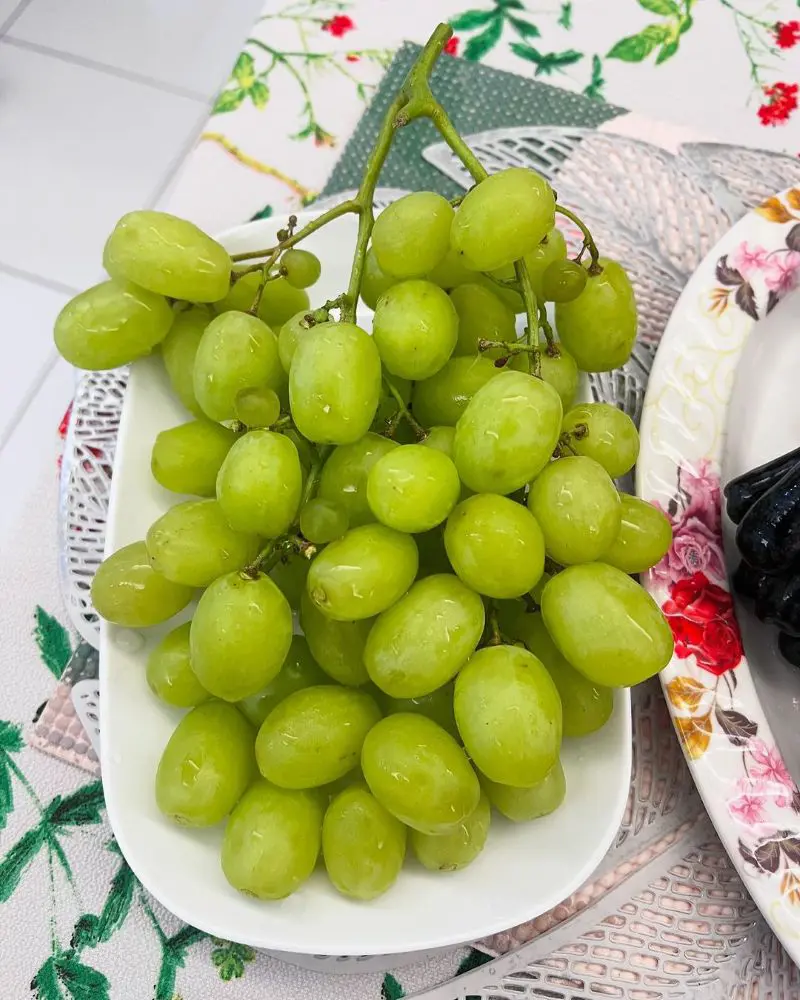
While grapes and raisins are usually safe for human consumption, they can be toxic to cats. Even so, not all cats are affected by grape poisoning; about 15% of cats are known to have a negative reaction to grape consumption.
The exact toxin in grapes and raisins that harms the cat is yet to be identified. However, as the negative reaction has emerged from both seeded and seedless grapes, it's fair to assume that the seeds are not poisonous.
Apart from pesticides on a grape's skin, cats are also likely to suffer kidney damage from the different chemicals available in the fruit. However, the chances of kidney damage are very rare, only affecting around 1% of cats.
A single grape will not cause much damage and some cats may not even show signs of sickness. However, if the amount exceeds 0.3 oz per 2 pounds of the cat's weight, it should require urgent care to protect that feline from kidney damage.
3. Alcohol
As little as a spoon of alcohol is toxic to cats, so always store your drinks where your pet can't reach. In fact, your cat doesn't even have to drink it; accidental absorption by skin can have similar effects to that of oral ingestion.
Compared to humans, cats have a much smaller body. So, their ability to digest alcohol is significantly lower than humans. That said, the signs and consequences of alcohol poisoning are similar in humans and cats; the only difference is that cats get intoxicated by a much lower amount than humans.
Similarly, the symptoms of alcohol toxicity in cats can often resemble a drunk human, with signs like lack of coordination, excitement, vomiting, and diarrhea. In cases of higher consumption, more severe symptoms can develop; seizures and coma are not uncommon in circumstances where the cat drank too much alcohol.
4. Caffeine

Although most cat owners know that coffee is bad for their pets, what many fail to understand is that all drinks containing caffeine, not just coffee, are harmful to cats. You should also avoid feeding tea, energy drinks, and other sources of caffeine to felines.
While coffee can have a soothing effect on humans, cats will experience physical discomfort from consuming caffeine. Normally, a cat will get hyperactive and may even witness a drastic increase in heart rate.
Besides stimulating the central nervous system, caffeine can also cause stomach upset and other gastrointestinal issues. Cats will normally vomit after ingesting coffee, which can remove some toxins from their bodies. However, excessive vomiting can have its own consequences, particularly dehydration.
5. Xylitol
Found in vegetables and fruits, xylitol serves as a sugar substitute; it is usually used in candies, mints, and chewing gums. For humans, xylitol is less harmful than sugar; it doesn't lead to tooth decay and can even protect against ear infections. However, excessive consumption can still have adverse effects.
Meanwhile, in cats, consuming xylitol can trigger a quick release of insulin, dangerously dropping blood sugar levels. Called hypoglycemia, this condition can be fatal to cats; but, even if the cat survives, there is a high risk of liver failure.
6. Raw Dough

Raw dough, especially meant to bake bread, contains yeast that continues to ferment in a cat's stomach; this is why eating raw dough is so dangerous to cats. As the dough ferments, it will turn to alcohol and may cause bloating, both of which are not ideal for felines.
After accidentally eating raw dough, the cat may appear drunk, which is usually followed by tremors, hypertension, and respiratory difficulty. If the cat has not shown any signs of poisoning, you can try inducing vomiting to remove any harmful substances from the body. However, once visible symptoms appear, attempting emesis can do more harm than good.
7. Macadamia Nuts
Native to Australia, macadamia nuts are cherished for providing healthy fats along with other vital nutrients like sodium, potassium, and protein. Consuming 1-2 nuts each day can have significant health benefits to humans; however, the same is not true in cats.
Besides posing as a choking hazard, the high-fat content can be detrimental to felines. While a nut or two taken occasionally are no threats, excessive consumption within a short period is particularly bad for the cat's health.
Though macadamia nuts are not toxic compared to other foods in this list, overconsumption can cause stomach upset and other gastrointestinal conditions. If your cat shows a negative reaction after ingesting macadamia nuts, consider using activated charcoal to safely dispose off these nuts.
8. Raw Eggs
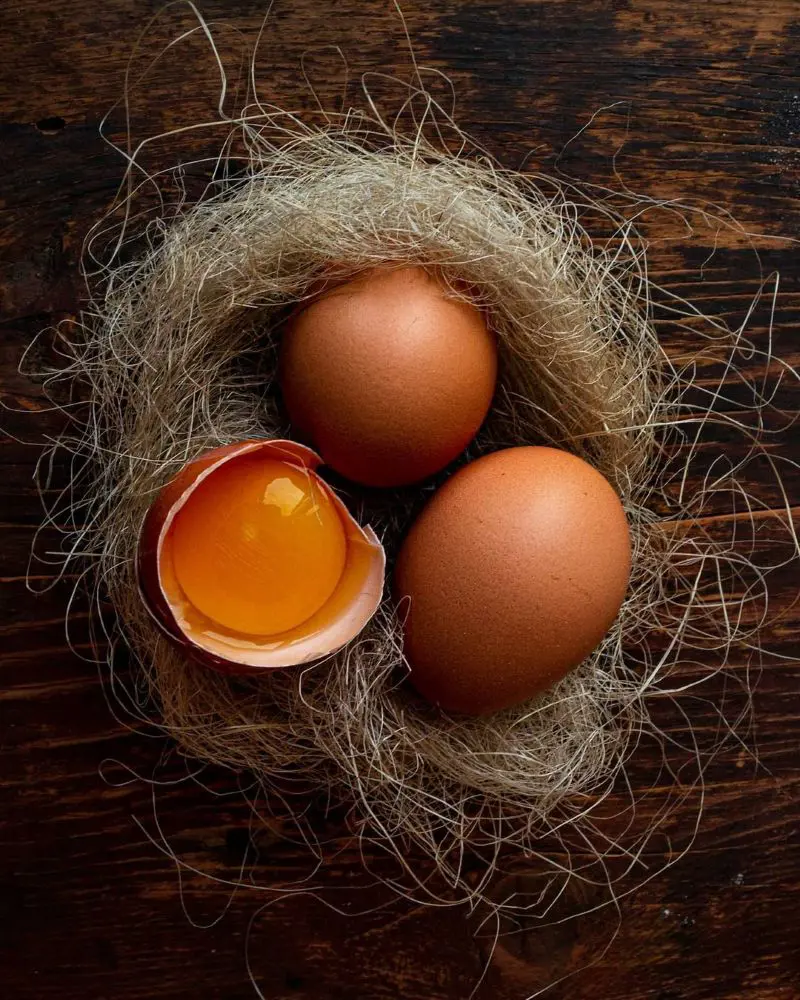
Never feed raw eggs to your cats. While you may feel raw eggs are safe, considering wild cats ate raw eggs all the time before they were domesticated, the presence of the Salmonella bacteria is enough to assume the adverse effects of raw eggs.
Additionally, raw eggs may also contain significant levels of avidin, a type of protein that obstructs a cat's body from absorbing an important vitamin called biotin.
Before feeding eggs to your pet, make sure that it is properly cooked. You can either boil, fry, or scramble the eggs; the dish doesn't matter as long as the eggs are cooked at a minimum of 160°F.
9. Raw Fish
Fish is considered one of the favorite foods for cats. As a natural source of crucial protein, amino acids, and essential fatty acids, fish can meet all the nutritional requirements of a feline.
While cooked fish is a healthy meal, raw fish should never be a part of a cat's diet. Like raw eggs, raw fish also carry the Salmonella bacteria along with other harmful substances like thiaminase, E. coli, and mercury.
But, when cooked with caution, cats can enjoy a variety of fish, including salmon, sardine, tuna, and more. However, fish should not be fed daily to cats and avoid adding salt or seasonings during the cooking process; a bland cooked fish is what a cat wants.
10. Milk and Dairy
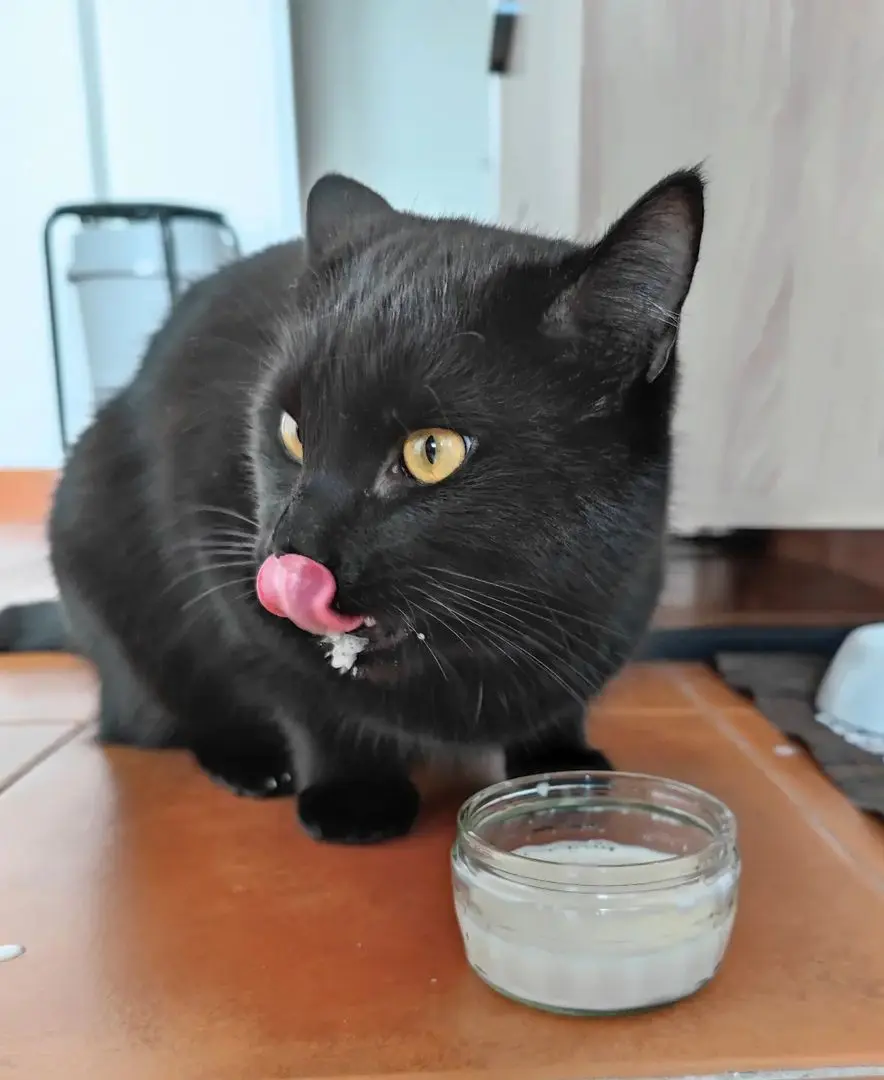
While cats are often described to be fond of milk and other dairy products, adult cats can't digest these foods. Cats usually survive on their mother's milk for the first two months; by the time they turn two, cat owners should consider feeding liquid or wet cat foods that are not hard to digest for kittens.
Normally, once a kitten is taken off its mother's milk, it should not be fed milk or dairy products. Instead, cat owners should focus on providing healthy meat-based cat food to meet its nutritional requirements.
As of 2024, vets believe that more than 50% of all cats are lactose intolerant. In fact, humans are considered the only animals that can digest milk of other animals as adults.
11. Bones
You might have noticed your dog going wild with excitement whenever you offer a bone to them. Chewing on a large bone often satisfies a dog's instincts.
Cats also love to occasionally chew on bones, although they are not particularly fond of it. While cats can eat small pieces of bones, larger pieces often act as a possible choking hazard. Feeding on bones not only provides cats with their much-needed calcium, it is also beneficial for improving joint health.
On the other hand, bones can get brittle when cooked, causing a risk of scratching or damaging their internal organs.
12. Citrus Fruits
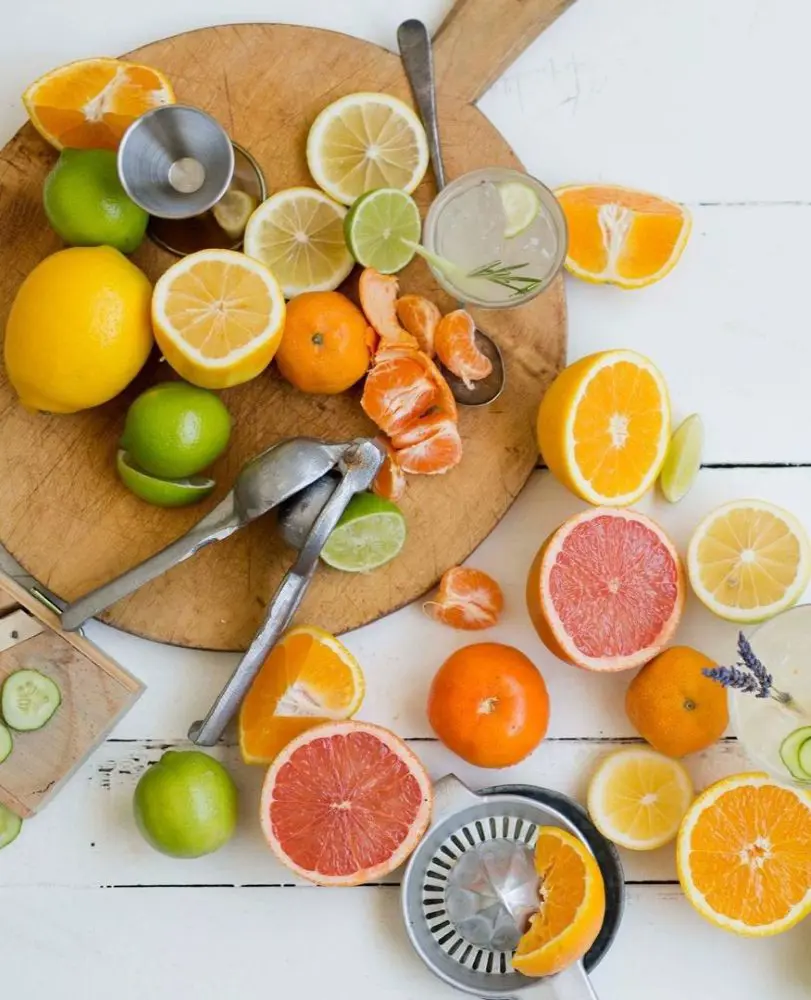
Cats are vulnerable to citrus poisoning, a condition that emerges after consuming fruits like limes, lemons, or oranges. Citric acid is especially bad for your cat as consuming even a tiny amount can trigger side effects like vomiting, diarrhea, and central nervous system issues.
While citrus poisoning rarely causes death, it can still lead to some detrimental conditions like seizures and tremors. And, oral consumption isn't the only way cats get citrus poisoning. If an open fruit touches a cat's skin, it can cause allergic dermatitis or other skin conditions.
13. Salt
As a cat's body is not equipped to handle high levels of sodium, salt can be gravely harmful to these pets. When a cat consumes salt, it can trigger multiple symptoms, including vomiting, diarrhea, excessive thirst, and lack of muscle coordination.
If the salt levels in the bloodstream become too high, the condition is called salt poisoning or hypernatremia. Severe cases of salt poisoning are linked to serious aftermath like severe dehydration, seizures, kidney damage, and even death.
Additionally, a cat can become poisoned from consuming as little as 0.5–1 gram per pound of body weight. For perspective, one teaspoon of table salt (about 6 grams) could be enough to cause toxicity in a cat weighing 10 pounds.
14. Avocado
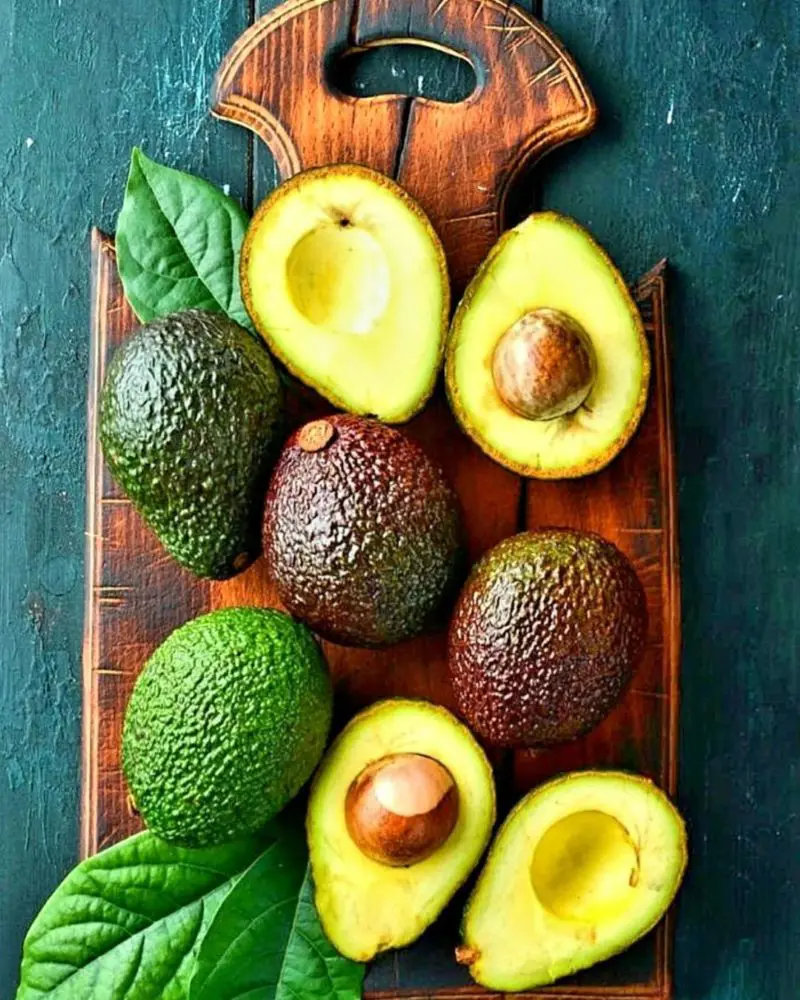
In recent years, avocado has become a symbol of healthy living, thanks to health enthusiasts all over the world adding this fruit to their diet. In humans, daily consumption of avocado is known to have a wonderful impact on health.
However, avocados can be extremely dangerous to cats for one simple reason - the presence of persin. Persin is a water-soluble fungicide that severely threatens a cat's survival; it can cause damage to the heart, and pancreas inflammation, and trigger allergies.
Although occasional consumption of avocado for cats is not considered harmless, it's better to avoid this fruit altogether to ensure your cat's survival and good health.
15. Coconut Oil
When used as medicine, coconut oil can significantly improve a cat's health. It is normally used as a form of healing potion for conditions like allergies, arthritis, dry skin, and gastrointestinal problems.
However, the negative effects of coconut oil often outnumber its benefits. As extremely high in calories, coconut oil can cause significant weight gain due to the amount of fat it contains. Similarly, gastrointestinal upset is another bad effect of feeding coconut oil to your cat.
If you plan to give coconut oil as a supplement, feed your cat only about 1/8 teaspoon of the fatty oil each day. If your cat digests it easily, you can try gradually increasing the amount.
16. Cherries
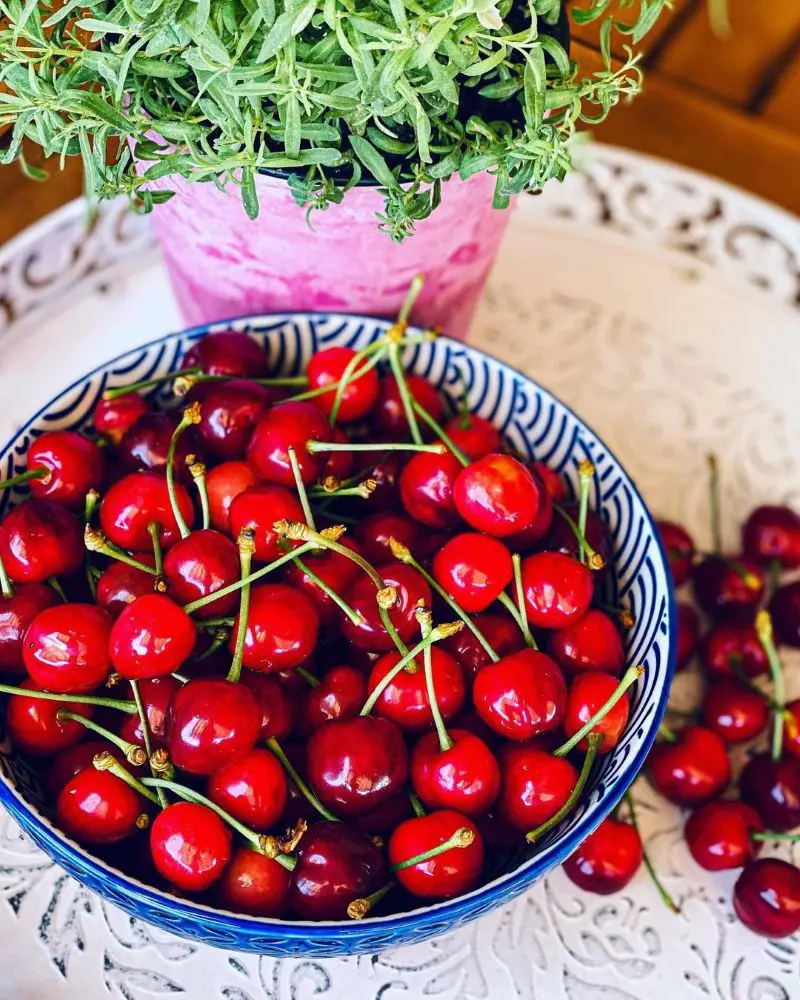
Cherry is celebrated as a sweet and appetizing fruit in the human world. Meanwhile, in cats, they're like a ticking time bomb. If your cat accidentally ate a cherry, the effects can take a while to show.
Cherry pit contains a toxic plant chemical called cyanogenic glycosides that is basically harmless until it reaches the cat's stomach. Once in the digestive tract, the cyanogenic glycoside turns to cyanide, poisoning the cat.
Not just the pit, but other parts of the plant, including stems and leaves, also contain the toxic chemical. While you can feed pitted cherries to your cat with the approval of a vet, it's best not to take chances with your pet's health.
17. Onion
Onions are not safe for felines, whether cooked or raw. The chemicals in these vegetables can significantly damage red blood cells, leading to a blood disorder called anemia.
Onions are used in a wide variety of human dishes; you may want to share your food with the pet by removing the onion. However, feeding cats food mixed with onion is not a responsible act of a cat owner. Even a tiny amount of onion can be life-threatening, so make sure you only give them foods and treats that are completely onion-free.
18. Garlic
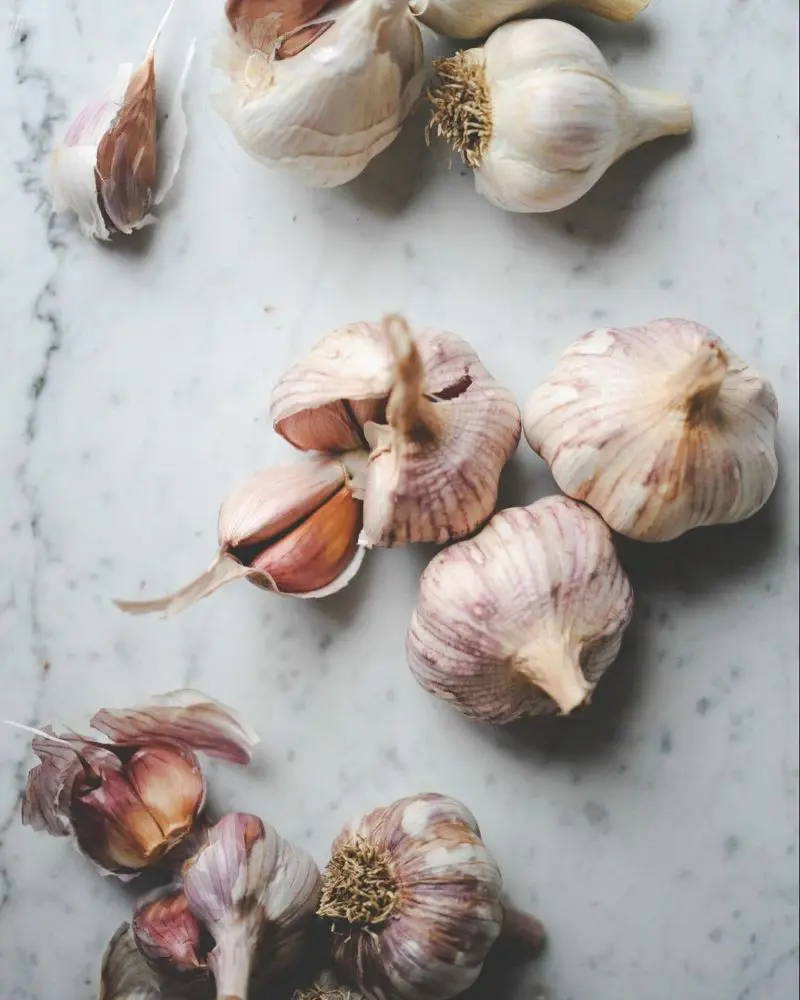
Belonging to the same family of plants as onions, garlic is considered five times more dangerous than onions to cats. And, similar to onions, garlic is also toxic in all forms, including garlic powder, minced garlic, or garlic cloves.
For an adult cat, a small amount of garlic, as little as 4 to 7 grams, can cause serious side effects. When suspected of garlic poisoning, look for symptoms that are consistent with the negative reaction to garlic. Symptoms, including vomiting, abdominal pain, and diarrhea help you narrow down the source of poisoning.
19. Fat Trimmings
Referred to as pieces of fat removed from meat, fat trimming are often discarded or used in cooking. While these scraps might seem like a tempting treat for cats, they can be harmful and should be avoided.
Cats are obligate carnivores, but their bodies are not designed to handle high amounts of fat, especially when it is raw or improperly prepared. One of the main risks of feeding fat trimmings to cats is digestive upset - excess fat can overwhelm their gastrointestinal system. Over time, a diet high in fat may also contribute to obesity, raising the risk of chronic conditions like diabetes or heart disease.
20. Raw Potato
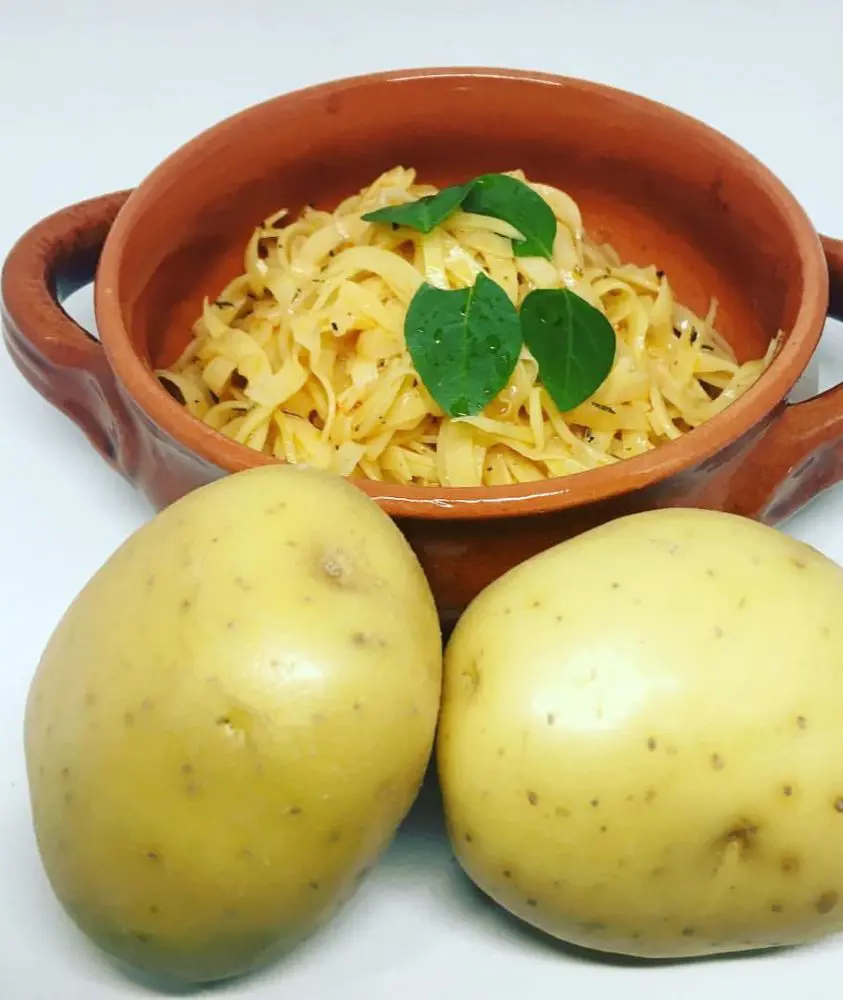
As carnivores, cats aren't necessarily fond of potatoes. Felines need a full-meat-based diet to survive, so feeding them vegetables isn't very effective.
However, potatoes, in particular, should be avoided from a cat's food due to a toxic compound called solanine. Solanine is created by the potato plant as a natural defense against pests, but it can also affect many animals.
To neutralize the effects of solanine, cook the potato thoroughly. While cooked potatoes aren't harmful to cats, the high carbohydrate content can promote obesity in felines.
Top Lists



